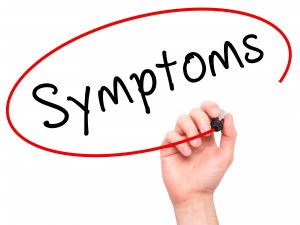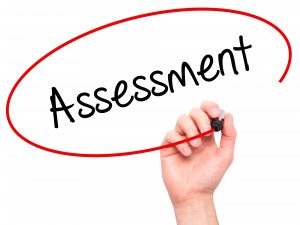D epression occurs in 30-40% of people who have sustained a significant brain injury. It is important to note that some people will have an atypical presentation of depression following brain injury and may be unable to communicate this appropriately as a result of cognitive and/or communication impairments.
epression occurs in 30-40% of people who have sustained a significant brain injury. It is important to note that some people will have an atypical presentation of depression following brain injury and may be unable to communicate this appropriately as a result of cognitive and/or communication impairments.
Typical symptoms of depression include apathy,  reduced motivation, reduced energy, low mood, irritability, frustration, changes in sleep patterns, altered appetite, loss of self-confidence, loss of self-esteem, anhedonia (loss of ability to experience pleasure), social isolation, hopelessness, guilt, self-blame, persistent negative thoughts about life and occasionally suicidal thoughts.
reduced motivation, reduced energy, low mood, irritability, frustration, changes in sleep patterns, altered appetite, loss of self-confidence, loss of self-esteem, anhedonia (loss of ability to experience pleasure), social isolation, hopelessness, guilt, self-blame, persistent negative thoughts about life and occasionally suicidal thoughts.
Brain injury may interfere with sleep, appetite and energy levels and these symptoms are therefore not always the most useful when trying to diagnose depression. A depressive illness may be suspected if the individual presents with some of the symptoms listed above and/or there is a significant dip in their overall level of functioning.
It is important to note that anxiety, irritability, agitation and, occasionally, aggression may be presenting features of a depressive illness following brain injury, especially if the person’s ability to identify the cause of their distress and communicate this is impaired by cognitive and/or communication difficulties. These features may be perceived as challenging behaviour in some individuals.
 There are several screening tools for the diagnosis of depression including the Patient Health Questionnaire-9 (PHQ-9) and the Hospital Anxiety and Depression Scale (HADS). However, it is important to be aware that the use of these questionnaires may not always be helpful in diagnosing depression following brain injury. This is because:
There are several screening tools for the diagnosis of depression including the Patient Health Questionnaire-9 (PHQ-9) and the Hospital Anxiety and Depression Scale (HADS). However, it is important to be aware that the use of these questionnaires may not always be helpful in diagnosing depression following brain injury. This is because:
- The diagnostic criteria outlined may not actually be due to depressive illness, but rather may reflect the neurological sequelae of brain injury (e.g. poor concentration, fatigue, sleep disturbance, restlessness, lack of motivation).
- Problems with communication, cognition and insight may adversely impact upon the person’s ability to accurately complete a questionnaire.
Therefore screening questionnaires need to be interpreted in the light of a full clinical assessment.
For advice regarding treatment which may be helpful in the management of depression, please click here.